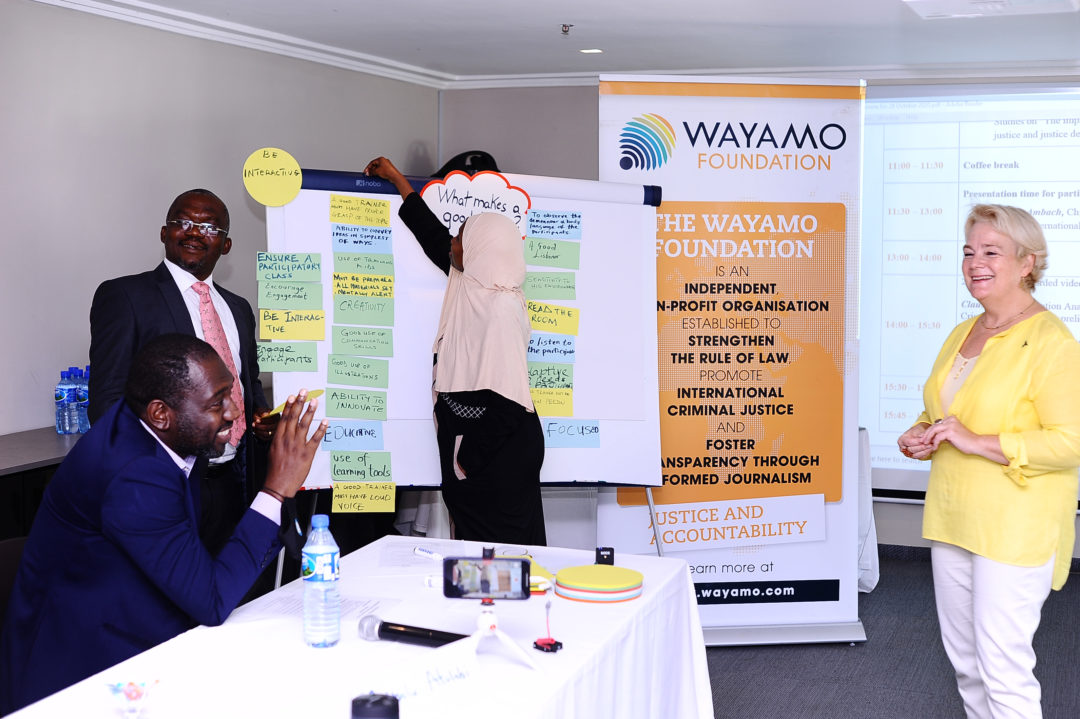Second International criminal law course with a training-of-trainers component
28 October 2020, Abuja, Nigeria
The Wayamo Foundation and the International Nuremberg Principles Academy have concluded the second international criminal law course with a training-of-trainers (ToT) component in Abuja, Nigeria. The first course took place from 26 to 29 November 2019, in Abeokuta.
The objective of the ToT programme is to further equip Nigerian institutions with the necessary skills and knowledge to train their network of legal practitioners and relevant actors in international criminal law and international humanitarian law. Our philosophy is to combine the provision of knowledge with a ToT course, with knowledge and delivery being seen as a package.
The timing of the Abuja workshop at the end of October meant that it was held under challenging circumstances, coinciding as it did with the eruption of the EndSARS protests across Nigeria, which prevented a number of local participants from travelling and attending as planned. In addition, the need to comply with the country’s Covid-19 regulations not only minimised the presence of guest speakers, but required the Wayamo Foundation Director herself to undergo the prescribed quarantine period and repeated coronavirus testing. Social distancing rules also made it necessary to rent a larger conference facility.
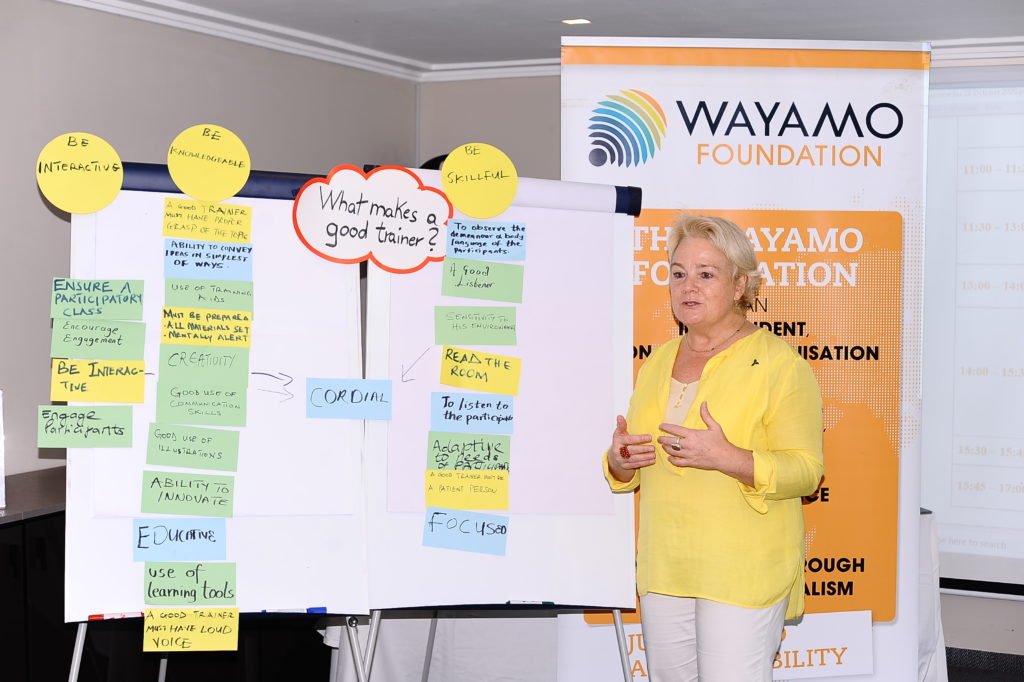
Wayamo Foundation Director Bettina Ambach leads the second International criminal law course with a training-of-trainers component which took place on 28 October 2020 in Abuja, Nigeria.
Due to the travel restrictions, an innovative (and surprisingly successful) workshop model had to be used. This consisted of combining in-person sessions with pre-recorded lectures, and online Q&A sessions between online experts elsewhere and the participants based in Abuja. The meeting itself was personally attended by roughly half of the course participants, with others joining online.
The event was officially opened in person by Wayamo Director, Bettina Ambach, and via Zoom by Natacha Bracq, Senior Officer for Training and Capacity Building at the International Nuremberg Principles Academy, using a pre-recorded video. Following these opening remarks, Research Professor Peter Akper SAN of the Nigerian Institute of Advanced Legal Studies started the day with a presentation on “The crime of genocide”, which was followed by another participant who addressed the subject of “Fundamentals of international humanitarian law”. Feedback in real time was provided by Philipp Ambach, Chief of the Victims Participation and Reparations Section at the International Criminal Court (ICC), who joined the workshop online.
More presentations followed during the day on topics such as, “The impact of the Covid-19 pandemic on access to justice and justice delivery in Nigeria”, “The Office of the Prosecutor at the ICC”, and “Domestication of the Rome Statute in Nigeria”.
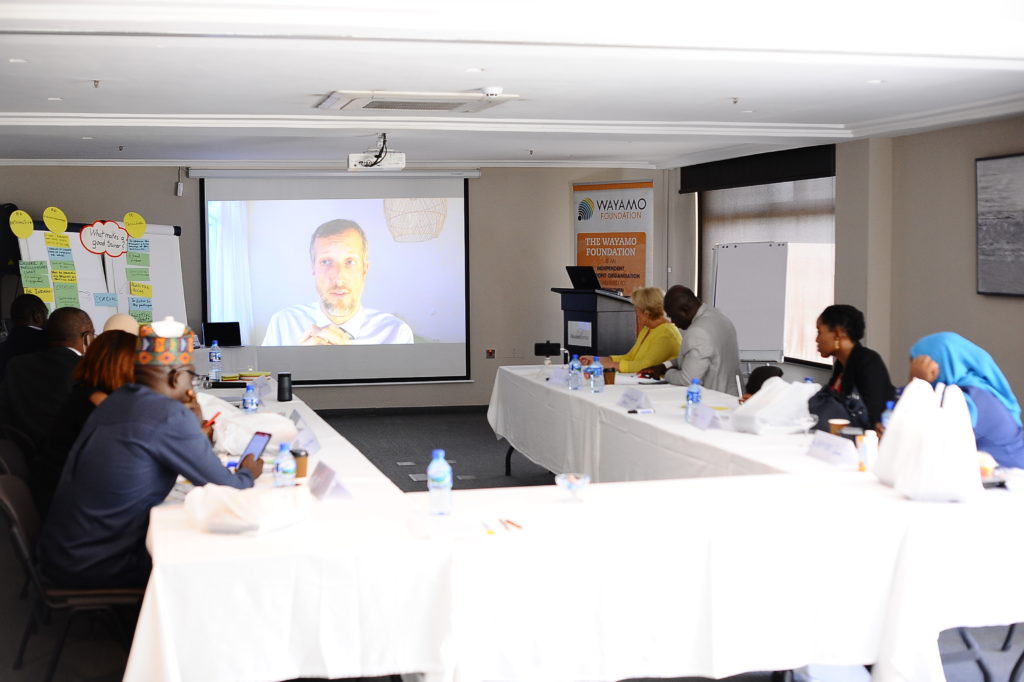
The workshop combined online sessions with in person activities.
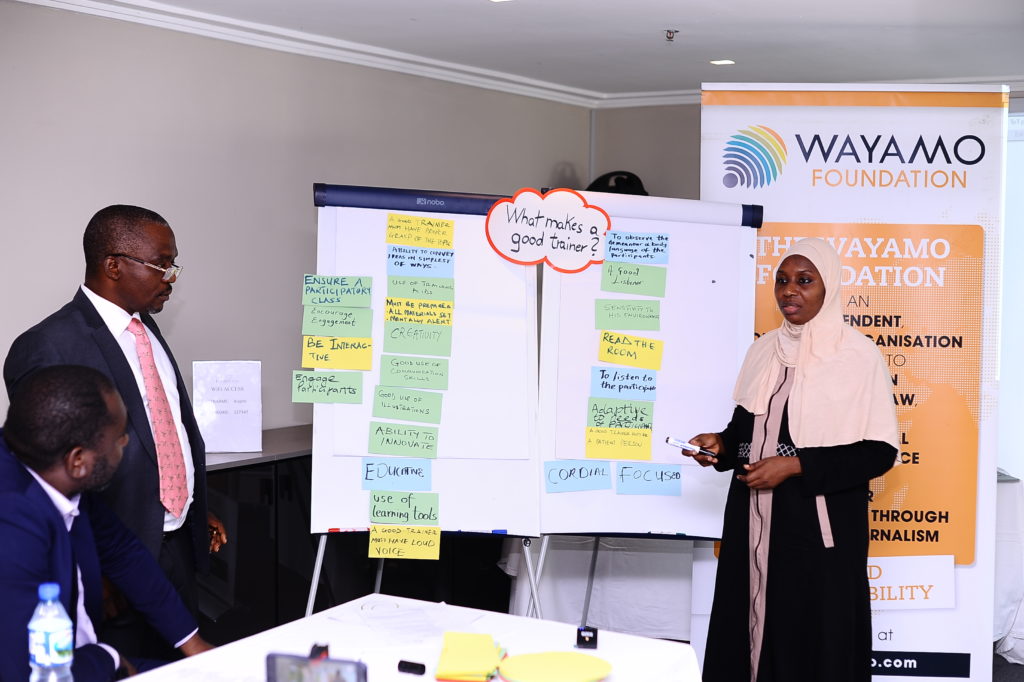
Participants represented the Nigerian Institute of Advanced Legal Studies, the National Judicial Institute and the Nigerian military.
In contrast to the essentially theoretical nature of these contributions, Bettina Ambach now gave a practical, hands-on Train-the-Trainer refresher session, ending with an interactive brainstorming exercise about the qualities of a good trainer. Marking yet another change of pace, two pre-recorded videos contributed to the variety of the course content: Claus Molitor, Situation Analyst in the Office of the Prosecutor (OTP) at the ICC had prepared an update on “The preliminary examination in Nigeria”; and Sofia Coelho Candeias from the Office of the Special Representative of the Secretary-General on Sexual Violence in Conflict elaborated on “The investigation and prosecution of sexual and gender-based violence”.
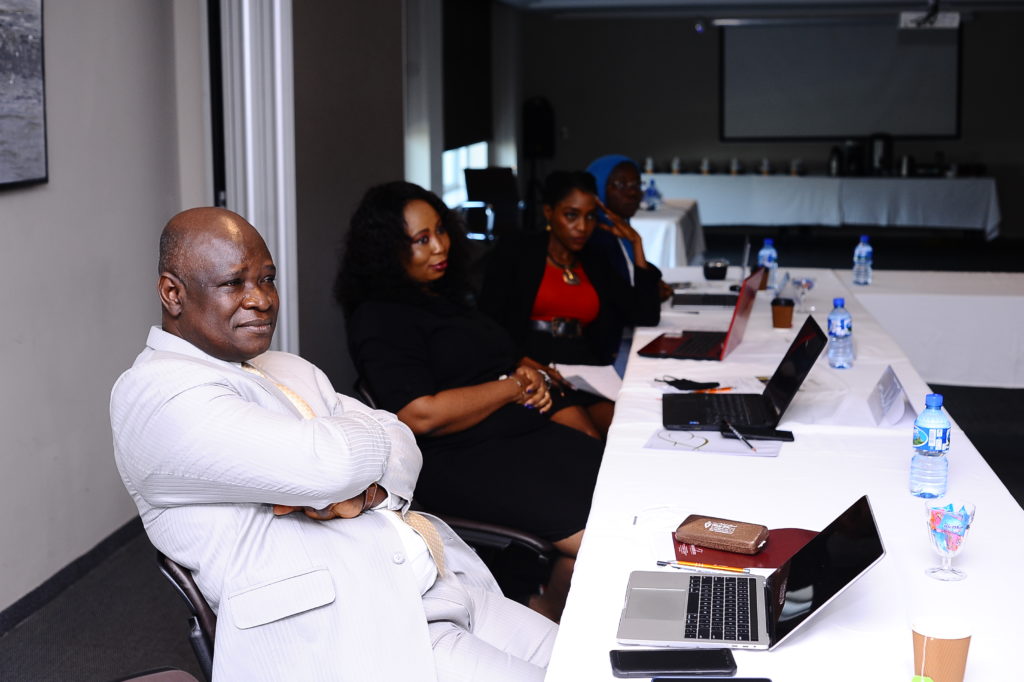
Participants of the second International criminal law course with a training-of-trainers component which took place on 28 October 2020 in Abuja, Nigeria.
Some of the participants’ comments in their respective course evaluations afford valuable insight into the workshop’s perceived impact. These ranged from, “The content of the OTP´s session was most relevant and was an eye-opener”, to “Sexual violence crimes need to be investigated and prosecuted much more in Nigeria“, “The circumstances were challenging, yet the organisers managed to deliver the training!”, “We successfully combined knowledge with delivery” and lastly, “Interactivity is key for a good training”. Perhaps most telling of all, however, was the fact that the participants expressly requested more and longer workshops.
The twenty course participants from the Nigerian Institute of Advanced Legal Studies, the National Judicial Institute and the military are now completing the last step of the course, by sending in their individual on-line presentations for evaluation and feedback by Wayamo’s and the Nuremberg Academy’s panel of experts.

